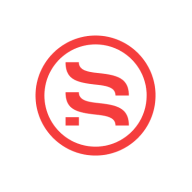

Ubuntu Linux and Series are contenders in the tech solutions market, catering to diverse needs. Ubuntu Linux often has an edge due to its open-source model and affordability, while Series stands out with robust features suitable for high-performance requirements.
Features: Ubuntu Linux is known for its open-source foundation, customizable interface, and broad application support. It offers users flexibility and control. Series features advanced proprietary solutions, optimized performance, and built-in analytics tools favored by users who prefer seamless, integrated operations.
Ease of Deployment and Customer Service: Ubuntu Linux allows for flexible deployment across many environments, supported by a global community for troubleshooting. Series provides a structured deployment model with professional support for a smoother transition, offering consistent support and managed processes that appeal to businesses seeking reliable assistance.
Pricing and ROI: Ubuntu Linux is appealing for cost-minded organizations with no licensing fees, offering a strong ROI through efficient resource utilization. Series involves higher initial setup costs but offers a higher ROI for those taking advantage of its comprehensive features for increased productivity, making it suitable for companies aiming for high performance despite the cost.

Series is widely used for project management, task tracking, and team collaboration, known for its intuitive design and efficient workflows.
Series enables efficient communication, task prioritization, and progress monitoring, making it effective for organizing projects and meeting deadlines. The platform also enhances transparency and accountability among team members, boosting productivity and simplifying task delegation. Integration with other tools and scalability to accommodate different business sizes further enhance its appeal.
What are Series' key features?
What benefits should be considered?
In industries like technology, Series is implemented for robust project management, ensuring deadlines are met and enhancing team collaboration. In marketing, it aids in streamlining campaign tracking and performance analytics. Health care teams use it for task delegation and maintaining accountability, ensuring patient care tasks are efficiently managed.
Ubuntu Linux is an open-source platform known for its robust security, ease of use, and rapid performance. Its lightweight design and comprehensive support system make it ideal for diverse IT environments, providing seamless management and scalability options.
Ubuntu Linux stands out with its open-source nature that allows extensive customization and access to a broad range of free software. It is widely praised for its stability and a vast package repository offering regular updates, enhancing its usefulness across different sectors. The platform is equipped with a lightweight design and excellent community support, making it scalable and easy to manage. While it could improve in areas like Windows software compatibility and user interface refinement, its benefits in enterprise management and development projects are undeniable. Improved documentation, better hardware integration, and enhanced third-party application compatibility are additional focal points to consider.
What are the key features of Ubuntu Linux?
What benefits should be considered from reviews?
Ubuntu Linux is prominently implemented in industries for tasks such as server management, application deployment, and software development. Its resource efficiency and open-source tool compatibility make it a favorite for programming, research, and cybersecurity. Companies frequently use it for web hosting, cloud services, and managing multi-user enterprise solutions.
We monitor all IoT Operating Systems (OS) reviews to prevent fraudulent reviews and keep review quality high. We do not post reviews by company employees or direct competitors. We validate each review for authenticity via cross-reference with LinkedIn, and personal follow-up with the reviewer when necessary.